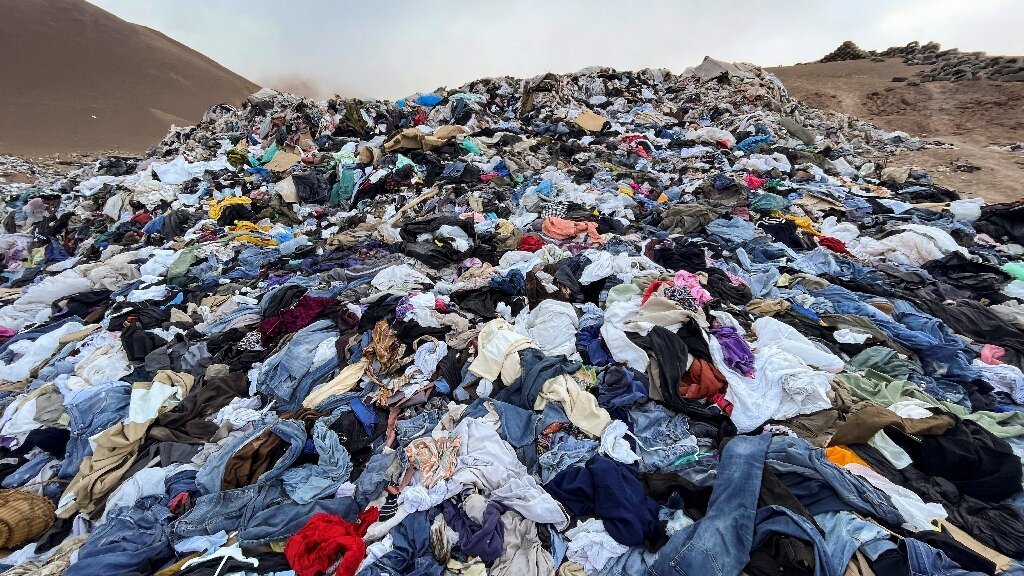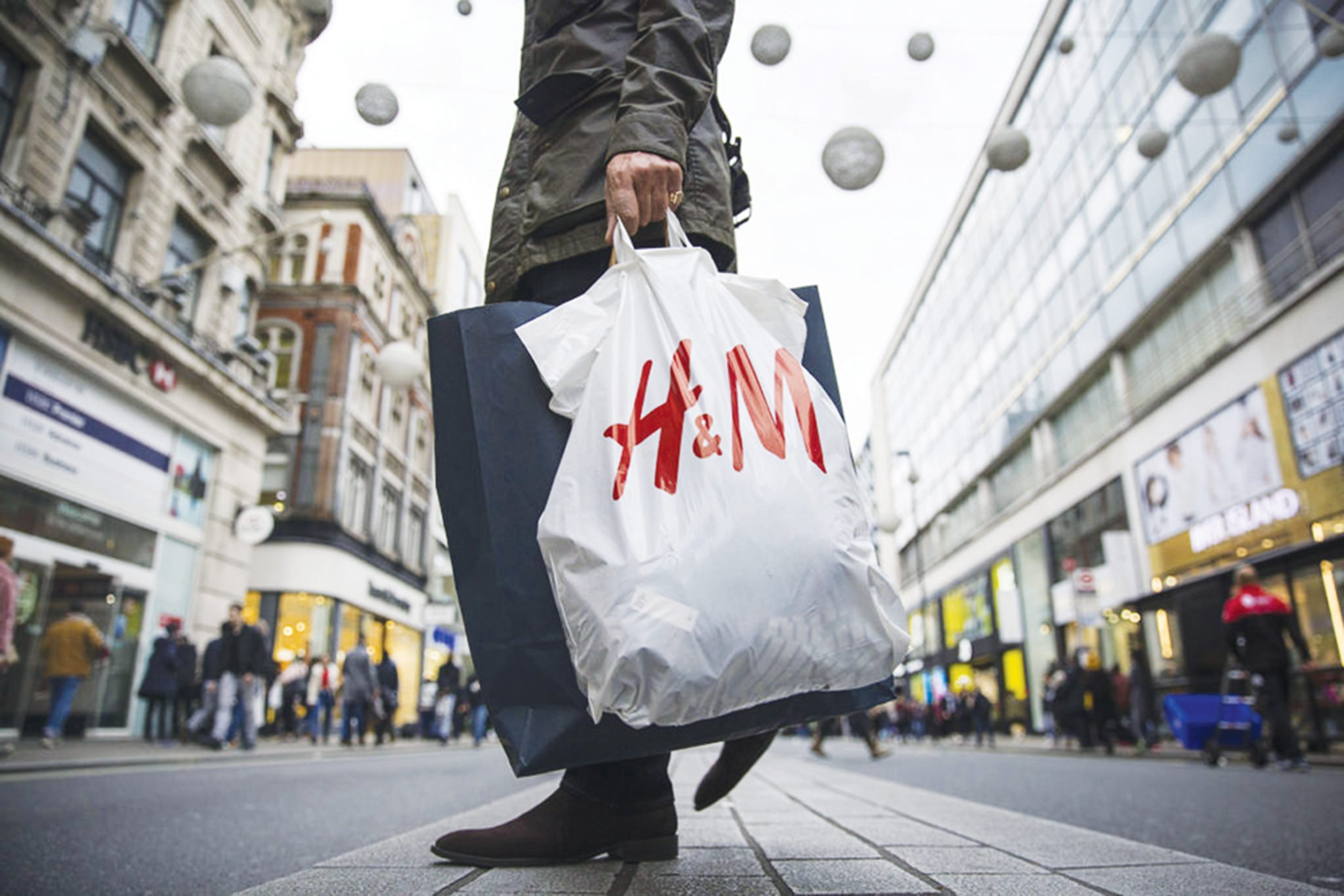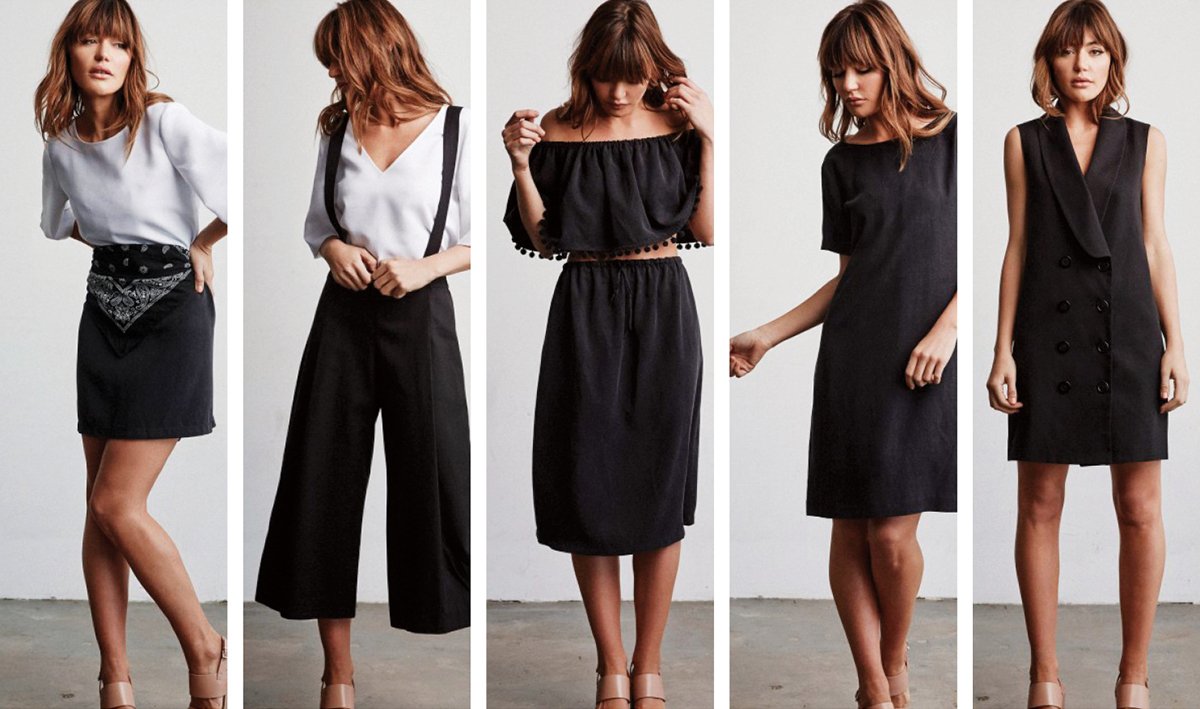Women Owned Clothing Brands You Should Buy From Instead of Fast Fashion
BY SARI BROWNLEE, GRADE 9
Cheap, trendy clothing sounds like a win-win, but do you know the effect it has on the environment? Clothing brands like Zara, GAP, Urban Outfitters, and many other popular companies are considered fast fashion and are harming the environment with their unsustainable practices. While shopping at these stores may be easy, it often leaves you with a poorly made item that will soon have to be thrown away. However, there are ways you can shop sustainably and find pieces that are just as cute without contributing to environmental destruction.
What is Fast Fashion?
We must first understand exactly what fast fashion is and why it is so popular. According to entrepreneur Solene Rauturier, fast fashion is the process of taking clothes from high fashion and replicating and mass producing them to be sold for very little money. Within a week of a designer collection’s launching, low quality copies are being sold
Pile of used clothes in a landfill. Phys.org
at your local H&M or Forever 21. An article by Business Insider revealed that fast fashion dries up water sources and pollutes rivers and streams. In an article entitled “The Environmental Price of Fast Fashion,” Kirsi Niinimäki makes the claim that "impacts from the fashion industry include over 92 million tonnes of waste produced per year and 79 trillion liters of water consumed." The water that is used in the production of even growing the materials is so out of proportion due to the high demand of clothes. Not to mention that it’s also responsible for 10% of carbon emissions in the world. And even after all of that, every single year, 85% of the clothes go to landfills. These cheap and wasteful garments are creating a cycle of manufacturing from stores to buyers to landfills of which is unhealthy for both the economy and the environment. Throwing your clothes away after only a few wears is normalized with the rise of cheaply made clothing, however, clothes are not meant to last only a few wears – they should last much longer. Clearly, the cons greatly outweigh the pros. But what can you do to limit the negative effects of the fast fashion industry?
Person holding H&M bag. Voices of Youth
While the effort to combat fast fashion may seem pointless, a simple shift makes sustainable shopping much easier. However, there are both pros and cons with shopping sustainably, a con being higher prices. But if you really think about the garment's longevity, the cost is most likely worth it. Dan Trepanier points out some other things to look out for while finding ethical places to shop: buying garments made from natural fibers, shopping second hand, supporting more local shops, and looking for timeless pieces instead of just buying from trends.
These practices can greatly affect how much we wear the clothes and decrease the chances of discarding them shortly after purchase, which is how a majority of clothes end up in landfills. Since many fabrics, such as polyester and rayon, are made of plastic, discarded clothing increases quantities of plastic that are difficult to recycle. "Vintage clothing has a huge role to play in making fashion more sustainable and reducing a global footprint…" said Emma Watson in an article by Harper's Bazaar. You are not only repurposing a garment, you are finding a garment that may not exist anywhere else and is entirely unique. While sustainable shopping can seem daunting at first, your wardrobe and the planet will ultimately thank you.
Sustainable Alternatives
Now you understand what fast fashion is and how to help combat it, but you still need somewhere to start. Here are a few women owned clothing brands that are entirely sustainable:
VETTA
Vetta’s capsule wardrobe. Boston Magazine
VETTA is an online store launched in 2016 by Clara Bartlett and Vanessa van Zyl that specializes in minimalism. Their overall goal is to help women all over the world build a more ethical and sustainable wardrobe, teaching us that you don't need hundreds of pieces to be fashionable. One of their main focuses, selection wise, is their capsules that have five pieces that you can mix and match. These capsules are curated so that you only need these five items to make a whole month's worth of outfits, and there are plenty of options to choose from. In addition to the capsules, they sell individual clothing pieces, ranging from linen shorts to chunky cardigans. Their prices are usually within $50.00 to $150.00, which although aren't cheap, are worth it for the incredible quality.
In terms of sustainability, they only use the highest quality of materials, including organic cotton, linen, and tencel. Additionally, their website discusses the conditions of the factories they work with: "We are committed to working with responsible factories who pay workers fairly, protect workers rights, have safe working environments, and prohibit child labor, forced labor, and discrimination." They also work with family owned businesses located in New York, New York and Los Angeles, California.
If you're in need of some basics or are looking to start building a capsule wardrobe, this is an amazing shop that you should definitely check out.
New Classics
What's special about New Classics is that it's not only one store, but a collective of smaller sustainable brands all at the click of a button. It was founded in 2014 by Alyssa Lau and since then has been working hard to spread awareness of the dangers of fast fashion and help promote the slow fashion movement in response. They also sell toiletries, beauty items, and even home decor.
New Classics model. New Classics
The idea of slow fashion is a foundation of the brands within New Classics. The idea is that the less we consume, the better we are off. The website reads, "Above all, the slow fashion movement is a SOLUTION to the fast fashion industry that instead encourages consumers to support local and small businesses, donate or re-purpose unwanted garments, shop secondhand, sustainable or artisanal, and invest in versatile, high quality clothing that will both last longer and transcend fashion fads." This brand is helping to slow down the fast fashion industry and it all starts with our mindset and how we view the items we purchase. New Classics is teaching people that it's not all about what's in right now, it's about what's timeless.
The clothes are made with the earth in mind and it is important to them that people know where what they are buying is coming from. They have a list of standards, including requirements like being recyclable and organic.
If you’re looking for eccentric clothing that tells a story of where it came from, New Classics is the shop for you.
WEAR PROCLAIM
Wear Proclaim models. Ethical Style Journal
Proclaim is a bit different from VETTA and New Classics, as it specializes in women’s delicates for a diverse and inclusive range of skin tones. Founded in 2017 by Shobha Phillips, the brand has been spreading the messages of both sustainability and diversity. Proclaim focuses on comfort because all women deserve flattering and eco-conscious lingerie. They sell bralettes, underwear, swimwear, slip dresses, and more.
This brand uses a ton of different eco-friendly materials that include cupro, organic cotton and hemp, recycled polyester, tencel, and even plastic bottles. The plastic bottles help reduce the overall plastic waste and can create a soft material you can wear. And on top of all of that, their factories in California believe in quality over quantity and promote safe working conditions and fair wages. Even their packaging is recycled!
Magazines like Glamour, Who What Wear, Elle, The Good Trade, and many more have been raving about Proclaim and its message.
Every single day, billions of people all over the world are asked the question of what to wear, but maybe people should start to ask the question of how our clothes are made or where they come from. If we disregarded trends and focused more on the environment, the Earth wouldn’t necessarily be in such a vulnerable position. The brands featured serve as an alternative, not a requirement. If we all focused on quality and not quantity we could start to extinguish the raging fire that is fast fashion.
This article was written during the GWS Summer Writing Workshop. Taught by the GWS Publication Team, the workshop hosted young journalists in grades 1 through 12, each with a passion for writing and learning. Over five weeks throughout the summer, students brainstormed, researched, outlined, drafted, revised, and ultimately produced an article about a topic related to women in business. Learn more about the workshop here.





